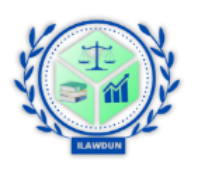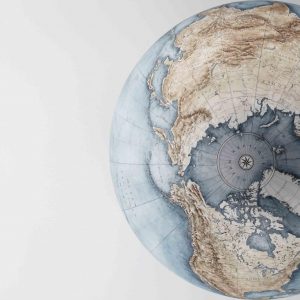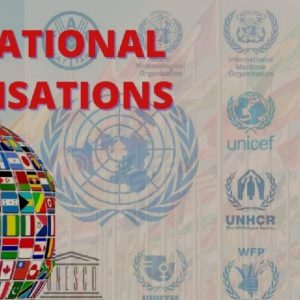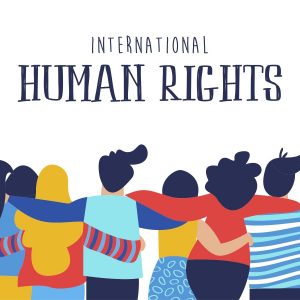The Institute of Law Research & Development of United
Nations (ILAWDUN), is an independent and
autonomous institute which conducts research into international law
on all levels, as well as the legal frameworks, policies and
programs of the United Nations.
(a) Life member of the Institute
(b) Permanent member of the Institute
(c) Staff member of the Institute
(d) Faculty member of the Institute
(e) Fellow of the Institute
(f) Scholar & Reader of the Institute
1. Constitution Articles of the Institute.
2. Bye-Laws of the Institute
3. Regulations made under the Constitution Articles
published in a Gazette or, in the bulletin of the Institute.
POWERS OF THE INSTITUTE ON QUALIFICATIONS,
COURSES AND EXAMINATIONS CERTIFICATION
(1) Subject to the provisions of the Constitution Articles,
the Governing Council of the Institute may approve any
qualification for the purposes of the Constitution Articles and
the Code of Standard and Procedure for Merit Award,
Membership and Fellowship of ILAWDUN and may for that
purpose approve any course of training, and qualification as a
result of the examination taken in conjunction with the course of training.
ABOUT ILAWDUN
INSTITUTE OF LAW RESEARCH & DEVELOPMENT OF UNITED NATIONS
The Institute of Law Research & Development of United Nations (ILAWDUN), is an independent and autonomous institute which conducts research into international law
on all levels, as well as the legal frameworks, policies and programs of the United Nations.
Determined to function as an Institute to be known, named and addressed as INSTITUTE OF LAW RESEARCH & DEVELOPMENT OF UNITED NATIONS (ILAWDUN), to promote and enhance international law on all levels, as well as the legal frameworks, policies, programs of development and purposes of the United Nations.

The Institute is an autonomous and independent organization for research, educational and support system, established with the purpose of promoting and enhancing international law on all levels, as well as the legal frameworks, activities, development programs and purposes of the United Nations systems, the global Earth, world regional institutions, and U.N member states, through research, studies, data gathering, documentation, review, analysis, publication, annotation, seminar, monitoring, education, reporting, consultancy, workshop and recommendation.
Membership shall be open to men and women of any nationality, and corporate organizations and institutions; provided such a person, organization or institution meets up the basic requirements set out in the Code of Standard and Procedure for Certification, Merit Award, Fellowship and Membership of the Institute and subject to the Constitution Articles.
Contract
View AllPrivate International Law
£300.00Step into the intricate world of international private contracts, where business transactions transcend borders and legal agreements traverse diverse jurisdictions. This course offers a comprehensive exploration into the complexities, nuances, and critical elements that define and govern private contracts on a global scale.
In today’s interconnected world, businesses and individuals engage in cross-border dealings requiring meticulous attention to legal frameworks, cultural nuances, and varying business practices. This course delves into the core principles and intricacies of international private contracts, covering crucial topics such as contract formation, negotiation strategies, choice of law, jurisdictional issues, dispute resolution mechanisms, and the impact of international conventions.
Environmental Law
View AllEnvironmental law & Pollution Crisis.
£200.00Embark on a transformative journey into the realm of environmental law and the urgent challenges posed by the global pollution crisis. Our course offers a profound exploration into the intricate intersection of legal frameworks and the critical need for sustainable practices in safeguarding our planet.
In today’s world, the escalating environmental crisis demands an in-depth understanding of the laws, regulations, and policies that govern environmental protection. This course delves into the multifaceted dimensions of environmental law, addressing crucial topics such as air and water quality, biodiversity conservation, waste management, climate change regulations, and the legal mechanisms essential for mitigating pollution’s detrimental impacts.
International Law
View AllInternational Business Law & Global Market
£200.00Welcome to the dynamic world of international business law and global markets! Our course is a comprehensive exploration into the intricate intersections between legal frameworks and the ever-evolving landscape of global commerce. Designed to equip you with a profound understanding of the legal principles governing international trade, this course delves into the complexities of cross-border transactions, regulatory compliance, dispute resolution, and the nuances of navigating diverse legal systems worldwide.
Peace & Conflict Resolution
£200.00Welcome to a transformative journey towards fostering peace and mastering conflict resolution. In a world often marked by discord and tensions, this course offers a profound exploration into the principles, strategies, and practical approaches essential for building and sustaining peace.
Rooted in the understanding that conflicts arise in diverse contexts, this course provides a comprehensive framework for comprehending the nature of conflicts, their underlying causes, and the dynamics that perpetuate them. Participants will delve into theories of conflict resolution, exploring mediation, negotiation, peacebuilding, and reconciliation strategies used to address and transform conflicts at various levels, from interpersonal to international.
Government Policies
£200.00Government policies shape the very fabric of our societies, influencing everything from healthcare and education to economics, environmental protection, and social welfare. This course delves into the multifaceted aspects of policymaking, examining the diverse factors that inform policy decisions, including political, social, economic, and ethical considerations.
Participants will gain insight into the policy process, understanding how policies are conceptualized, developed, and executed, along with the mechanisms for assessing their effectiveness. Analyzing case studies and real-world examples, this course explores various policy domains, highlighting the complexities and interdependencies within and between different policy areas.
International Organizations
£150.00This course offers a comprehensive study of the diverse array of international bodies, institutions, and organizations that play pivotal roles in addressing global challenges, fostering cooperation, and promoting shared interests among nations.
From the United Nations and its specialized agencies to regional bodies like the European Union, NATO, and others, this course delves into the origins, structures, functions, and evolving roles of these organizations. Participants will gain a profound understanding of how these entities operate, collaborate, and influence world affairs across various spheres including peace and security, human rights, trade, development, and environmental sustainability.
International Human Right
£300.00Welcome to a comprehensive exploration of international human rights—a profound journey into the principles, mechanisms, and challenges inherent in protecting and promoting the fundamental rights and dignity of every individual worldwide.
This course is a deep dive into the foundation and evolution of international human rights law, encompassing the Universal Declaration of Human Rights, treaties, conventions, and mechanisms established to safeguard and uphold these rights. Participants will explore the expansive spectrum of human rights, including civil, political, economic, social, and cultural rights, gaining insights into the interdependence and indivisibility of these rights.
Law & Justice
View AllA Theory of Justice-How Judges Think
£300.00‘A Theory of Justice’ and the intricate workings of judicial decision-making. This course delves into the seminal work of philosopher John Rawls and its profound implications for understanding fairness, equality, and justice within legal systems.
Rawls’ influential theory lays the groundwork for evaluating societal arrangements by envisioning a just society through the ‘veil of ignorance,’ where individuals design principles without knowing their own position in society. Drawing upon Rawls’ framework, this course critically examines the ethical and philosophical underpinnings of justice, exploring its application within legal systems and the reasoning behind judicial decisions.
International Human Right
£300.00Welcome to a comprehensive exploration of international human rights—a profound journey into the principles, mechanisms, and challenges inherent in protecting and promoting the fundamental rights and dignity of every individual worldwide.
This course is a deep dive into the foundation and evolution of international human rights law, encompassing the Universal Declaration of Human Rights, treaties, conventions, and mechanisms established to safeguard and uphold these rights. Participants will explore the expansive spectrum of human rights, including civil, political, economic, social, and cultural rights, gaining insights into the interdependence and indivisibility of these rights.
Social Media
View All

















